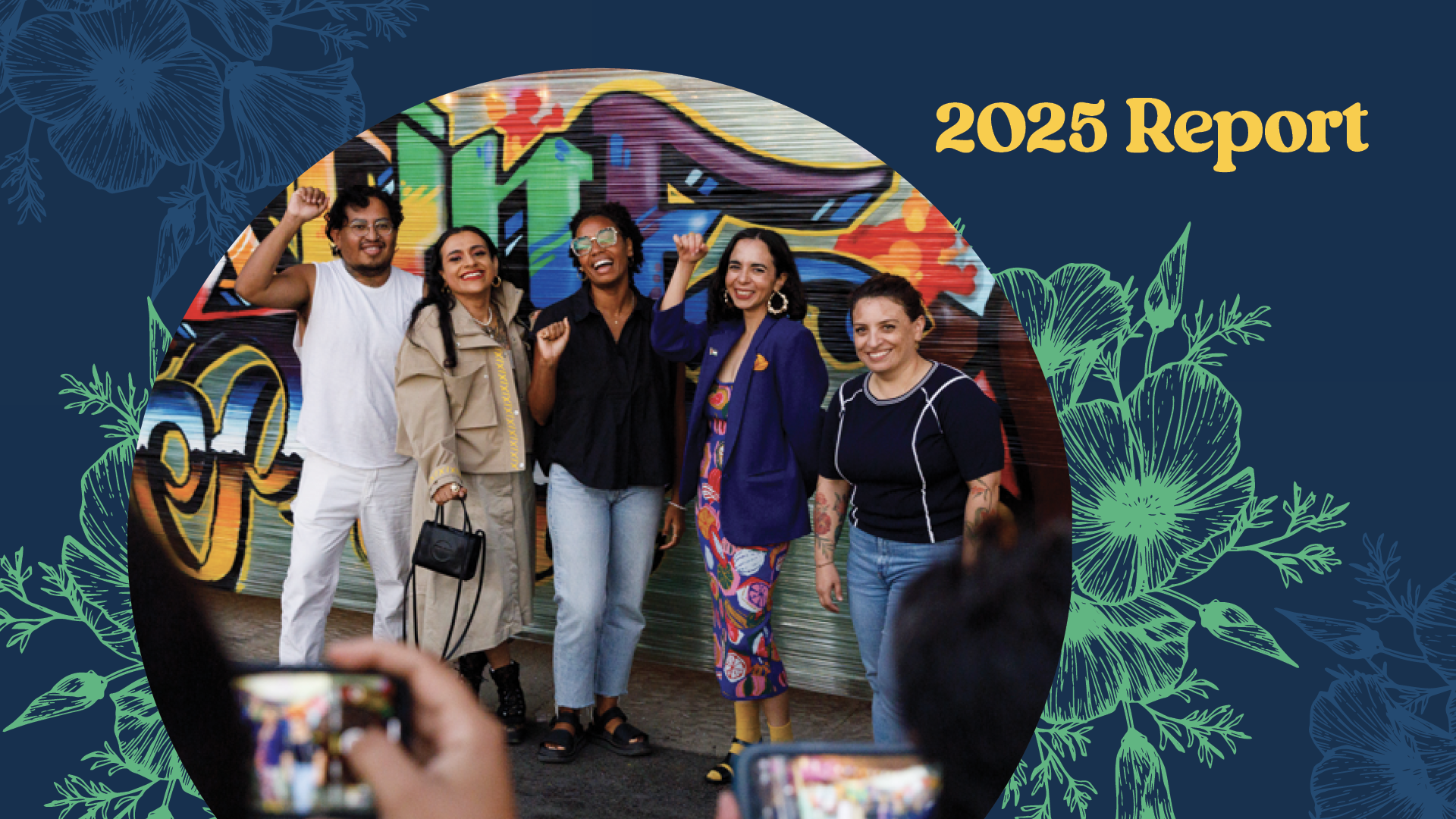Stop the Hate
A Field of Hope: the Border Region’s Collective Effort to Stop the Hate
In the most southern part of California, communities across the region are actively working together to amplify voices, heal wounds, and cultivate a field of hope in the face of hate. The beauty and impact of the Stop the Hate Border Region program lies not in a single bloom, but in the collective vibrancy of the many, much like California’s famed fields of poppies. Our recently released 2025 Stop the Hate Border Region Report showcases what happens when community organizations lead authentically and organically, and why this work must continue.
The Stop the Hate program launched in response to a devastating rise in hate incidents, especially targeting AAPI communities during the COVID pandemic. What started as emergency relief has grown into a transformative network that’s disrupting cycles of violence, fostering healing, and creating physical and psychological safety.
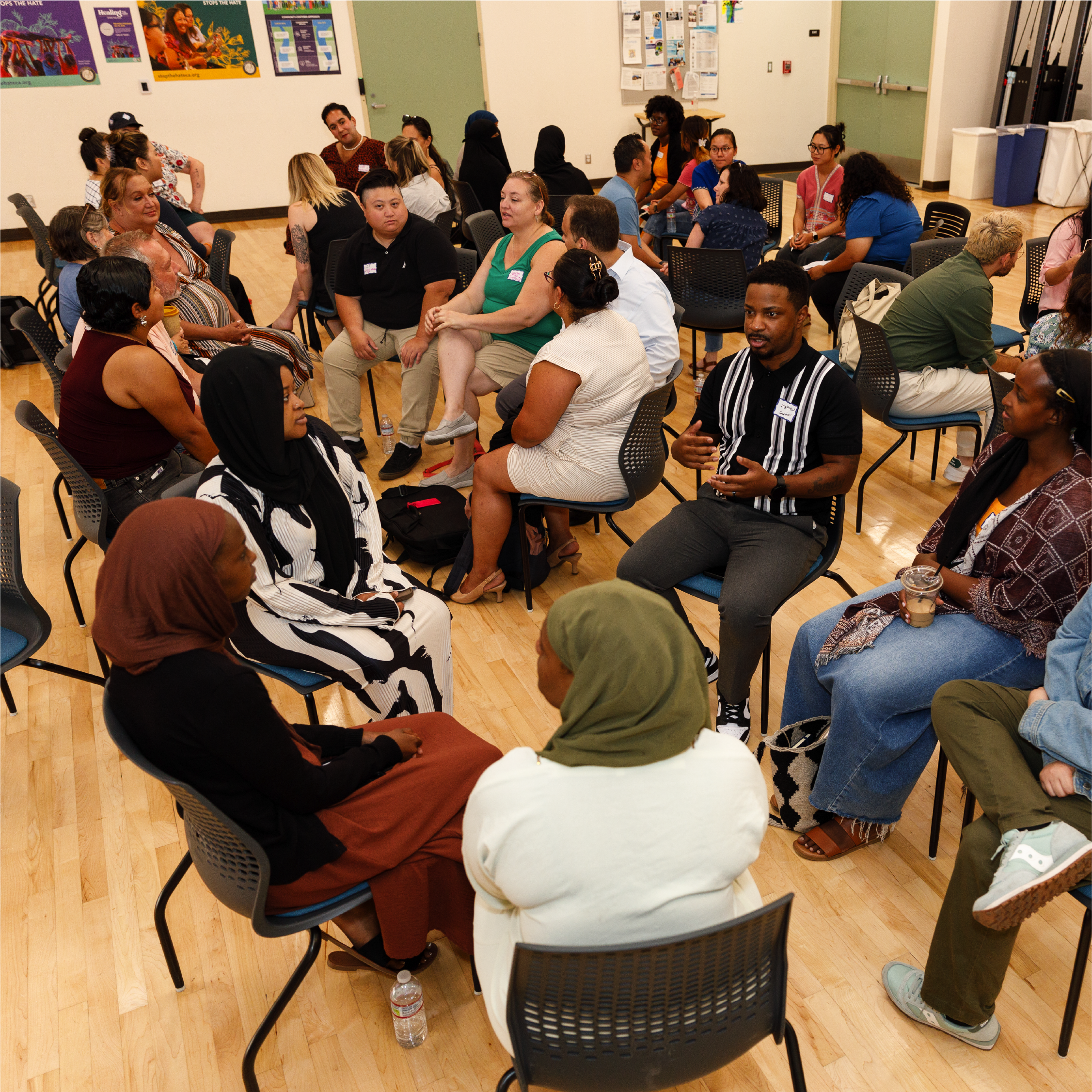
The Roots of Connection: Community Partners
Community-Based Organizations (CBOs) across San Diego and Imperial counties have been working tirelessly, some for generations, to plant deep roots of support – doing innovative work to heal communities, connect cultures and combat discrimination. However, historically limited resources also limited capacity, often resulting in siloed work. The region’s network of effective but underfunded programming needed a nourishing rain.
Catalyst of San Diego & Imperial Counties is the regional lead for the program now entering its fourth year. The team approached the project with an intentional effort to expand the network, bring additional grant resources into the region, and connect the work of the partners for collective impact. Now, $13 million is being invested in 27 border region organizations – up from just six organizations and $800k in the first round. CBOs are connecting based on their shared purpose with regional convenings and training opportunities. Grant funds are invested in each organization’s ability to scale their efforts and prioritize wellness, with a holistic embrace of direct, intervention and prevention services, from mental health support to de-escalation training to youth arts programs.
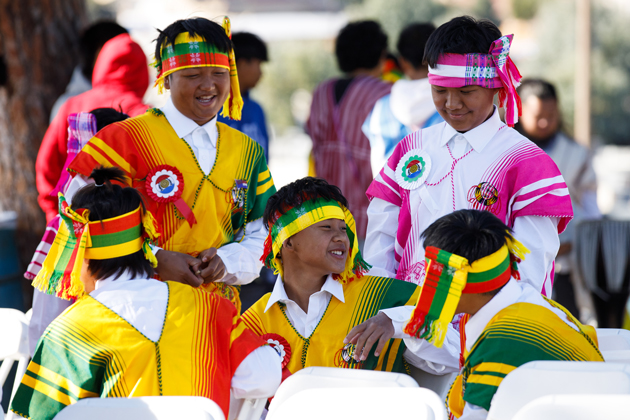
The Karen Organization of San Diego (KOSD) is a beacon of support for refugees from Burma/Myanmar, offering practical services like case management, therapeutic healing for isolated seniors, and cultural connection through dance, food and traditional celebrations. Born from the community itself, KOSD’s roots are planted in lived experience, with the majority of their staff understanding the unique refugee perspective based on their personal stories. This nuanced understanding allows KOSD to provide effective and culturally sensitive support, addressing both the immediate needs of refugees and the long-term challenges of integration and healing from trauma.
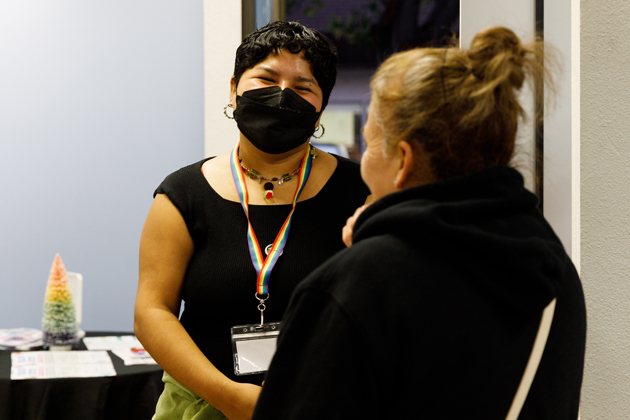
The North County LGBTQ Resource Center is another example of an organization bravely opening dialogue and building bridges between different communities, focusing on immigrants, LGBTQ+ individuals, and their allies. Their work fosters a sense of belonging and empowerment within a community that often faces marginalization and discrimination.
These programs, made stronger through Stop the Hate funding, are making a direct impact in our communities.
Blossoming Transformation: Impacting Individual Lives
The Stop the Hate Border Region partners delivered over 6,000 program events and workshops across 30 cities in two counties between July 2023 and June 2024, training or engaging more than 41,000 participants in prevention, healing, and community safety. In addition, 21 youth-serving initiatives are interrupting violence and supporting next-gen leadership.
However, the value of Stop the Hate is not just in statistics: it lies in nurturing a new reality. By centering community and building organizational capacity, the program is redefining how this essential work is supported. Stop the Hate doesn’t just run events or conduct outreach; it builds systems, cultivating a lasting infrastructure that will serve the community for years to come. This long-term impact is found in the lives that have been changed and the community fabric that has been strengthened.
It’s found in the renewed faith in humanity of program participants like Brenda, who suffered a violent hate crime that left her out of work for weeks. Through counseling and case management from the YWCA San Diego County, Brenda is recovering and rebuilding her life.
The Stop the Hate program’s core value is understanding that a hate crime isn’t just an isolated incident; it’s a tear in the fabric of the community that needs mending – and it is best mended from within, by those who understand its unique needs and complexities.
Cultivating Lasting Infrastructure: Supporting Services
Stop the Hate supports coordinated response teams that address hate incidents in real-time. Culturally competent victim support, restorative justice models, and services in multiple languages are available through program service partners, ensuring that participants receive the support they need in a way that understands their cultural background and linguistic needs. Community-led safety alternatives, including nonviolence training and grassroots safety teams, are empowering neighborhoods to take an active role in their safety and well-being.
Youth empowerment programming is designed to stop cycles of violence before they begin by equipping young people with the tools and knowledge to challenge hate and build more inclusive communities. Capacity-building workshops and training events are strengthening CBOs, enabling them to continue serving as cornerstones of support and change.
For example, Pillars of the Community creates safer spaces in neighborhoods most impacted by hate and violence in Southeast San Diego, providing places of healing, dialogue, and love for everyone from current and former gang members to young artists and activists. The UPAC Bridges to Wellness program opened culturally safe doors for mental health – a huge need in communities where stigma still reigns. These efforts demonstrate the program’s commitment to addressing the multifaceted nature of hate in ways that can be sustained over time.
A Vibrant Field of Action: A Full Spectrum of Services
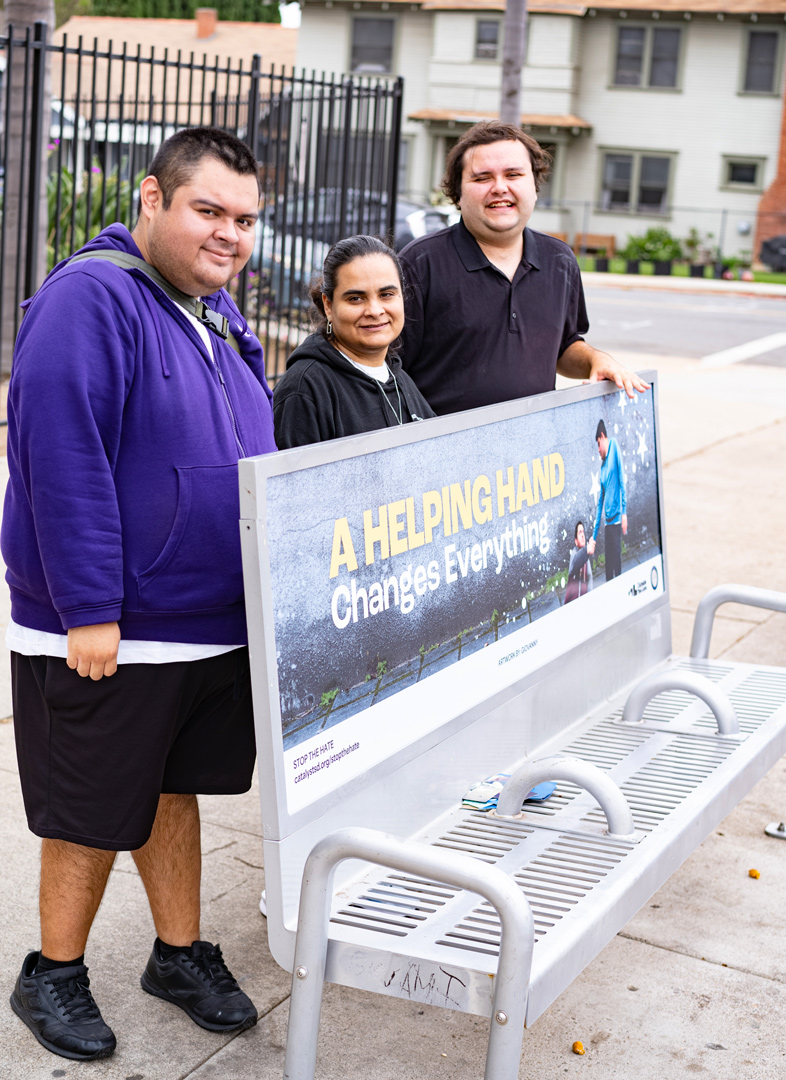
Stop the Hate does not limit programming to traditional survivor services like counseling and legal support, instead following the community’s lead on holistic support services. This is how the program found a powerful ally in art.
Stop the Hate’s art programming brings a unique impact to the work. Filmmaking, dance, spoken word, and other forms of artistic expression help build cultural connection, lift unheard voices, and serve as catalysts for change.
TranscenDANCE recently hosted the Rooted & Dreaming Spring Showcase featuring a unique combination of dance, poetry and art – encouraging every student to find their authentic voice and express themselves fully. At Outside the Lens, the Media Makers program serves participants with intellectual and developmental disabilities with essential creative programming. Program participants created a series of bus benches to spread the word on how to stop the hate. These are the stories that stay; the names and faces behind the numbers, the vibrant colors in a field of action. These perennial stories offer seeds of hope. They represent the ongoing struggle for justice and the unwavering commitment of the community to heal and grow.
Nurturing Community Growth: Responding to the Current Environment
Stop the Hate has been met with overwhelmingly positive public response in the border region, a testament to the deep need it addresses. The community at large has expressed a willingness to participate, unpack biases, engage in difficult conversations, and support each other in healing.
Stop the Hate understands that hate reverberates, triggering past traumas, impacting entire communities. The border region presents a unique landscape with a large immigration population, a wide array of cultural diversity, and bi-national economy – prompting the need for ongoing culturally relevant solutions.
The program’s long-term goals are ambitious, but achievable. Like a field of poppies that needs water and sunshine to bloom year after year, Stop the Hate needs continued investment to sustain the progress gained. In a time when identity is being vilified and used to divide communities, our region has the opportunity to continue leading boldly.
Stop the Hate has the opportunity to move beyond a moment of progress. In the border region, we are building a movement that continues to grow, a field that continues to bloom.
Reach out to Tuyen Nguyen at [email protected] to learn more about how you can support the program and its partners.
